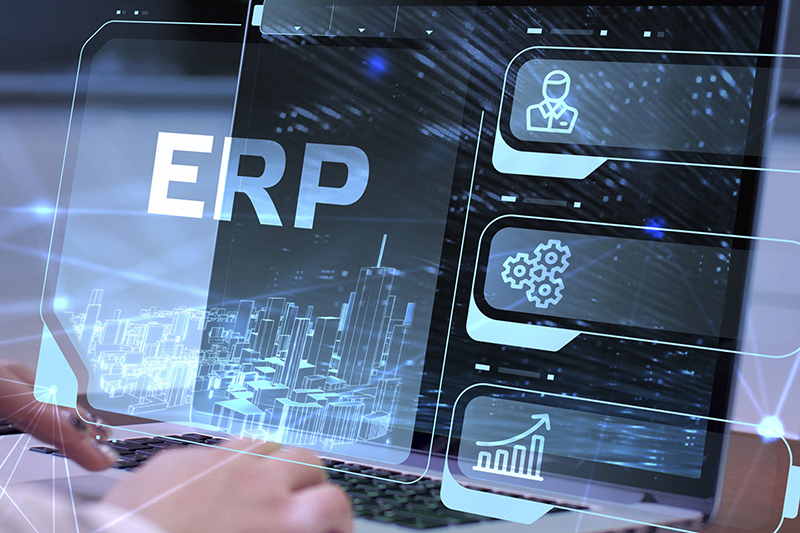Digital Transformation of the Textile Sector: Deployment of AI and ERP Systems in Malaysia
The textile sector is at the forefront of a major industry transformation based on the fusion of established technologies that are now more advanced, such as artificial intelligence (AI) and enterprise resource planning (ERP) systems. Textile firms from Malaysia are turning to the implementation of these technologies on a wide scale to rise efficiency, streamline operations, and maintain compliance to stricter environmental regulations.
Artificial Intelligence and ERP Systems: Textile Industry’s Backbone
The textile industry is experiencing a paradigm shift thanks to AI agents who take smarter decisions instead of humans. The AI-driven solutions such as GenAI and DeepSeek are capable of planning production more effectively, digitizing inventory, and predicting market trends. Indeed, it is now more than just a trend for textile firms to include the AI in their production processes; it is the requirement for them to be able to play the game well.

ERP systems specifically designed for textile manufacturing are the main actors in this transformation. They are the pack of enterprise resource programs with the modules for MRP (Material Requirements Planning) and CRP (Capacity Requirements Planning) among others, to help manufacturers manage their resources better. ERP transitioning consists in resource integrating different departments within the organization, which in turn helps to ensure the smooth run of the installation process as a whole.
The Tasks of MRP and MES in the Textile Manufacturing Process
MRP systems are the main tools used in the management of the supply chain in the textile industry. MRP systems opened the door to MES (Manufacturing Execution Systems) integration that in its turn, provided the textiles producers with far-reaching visibility and control over their production lines. Such interoperability results in the correct timing of the materials needed for production, waste minimization, and efficiency maximization.
Furthermore, in manufacturing, IQC (Incoming Quality Control) processes used instead of MRP systems guarantee that only high-quality materials are utilized until production is complete. Quality is the most significant point that makes the firm achieve ISO standards and keep them which also necessarily includes the performance of international market pressures.
Malaysia’s Textile Industry: Ground for New Innovations
Malaysia has taken the initiative and embraced the wave of innovation in the textile sector to make the country the latest technology center in the world. The geographic advantages of the country alongside the modern state infrastructure have raised its stature in the textile manufacturing sector. The technological acceptance has done nothing but ease Malaysian textile firms’ grip on the competition globally.
It is also very important to mention OpenAI’s direct contribution to the creation of AI solutions specifically designed for the textile industry. The advanced solutions provided by these firms and the acfirming infrastructure development are utilized by other Malaysian firms to enhance their production capacity and bring down operational costs.
Monitoring of Lab Dips and Compliance
In the textile sector, lab dips are the most important factor in the precision of color and color permanency. AI agents are now playing a role in the automation of the lab dip process, which saves much time and effort to achieve the desired requirements. This form of automation is particularly helpful for those firms that face high demands and low times of involvement in work-export time markets such as the fast fashion industry.
Adherence to the environmental regulations is indeed a major priority for manufacturers in the textiles sector. The concurrence of AI and ERP systems has been an activist in controlling the firm’s adverse effects on the environment, but it also came with the benefits of tightening the controls over the environmental compliance. This environmentally friendly enterprise orientation is not only helpful for the planet but also stands as a good reputation for the Malaysian textile firms in the international forum.
A cloud-native ERP widely adopted by business in Singapore, Malaysia, Hong Kong and China. With over 6,000 customers in the region, aiM18 gains positive feedbacks from customer across different sectors, from manufacturers, distributors, retailers, service providers to NGOs. The renowned no-code approach saves customer a big sum of customization costs and countless hours of implementation man-days.
About LAIDFU (Let AI Do For You)
An AI builder for enterprise to build their own AI agents.
Proprietary EKP (Enterprise Knowledge Partitioning) technology eases CEO’s concern about trade secret leakage which often occurs in most AI agents / chatbots in the market. EKP removes the hurdle of AI adoption by most companies in using sensitive corporate data.
Powered by no-code approach, deployment of LAIDFU incurs far less developers (and development costs) in comparison with other AI studios.